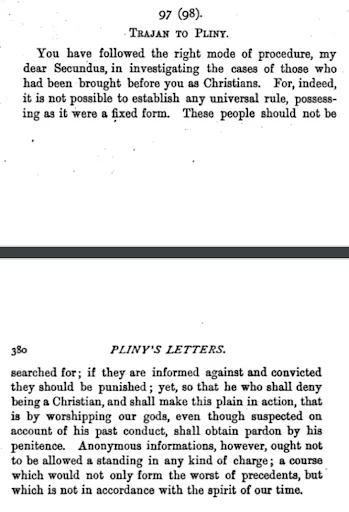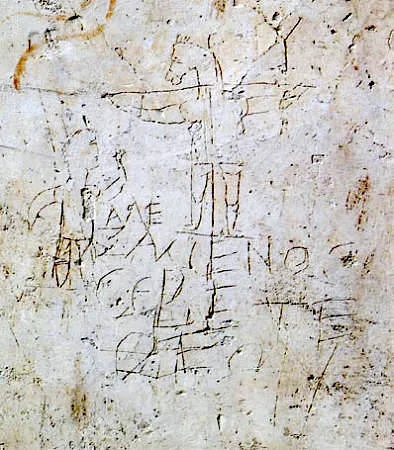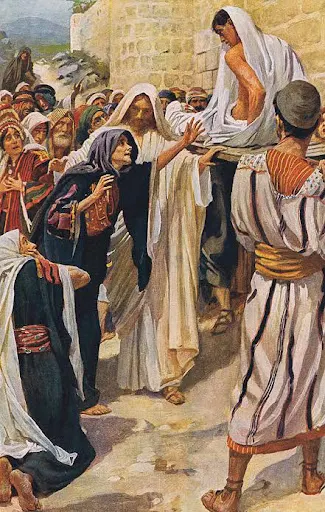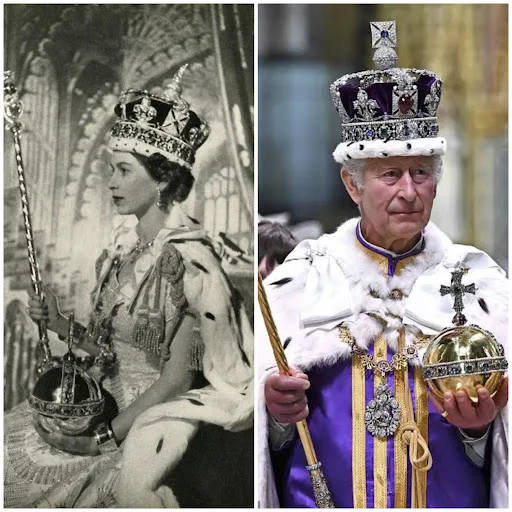Parable (paraballo) - is derived from two Greek words, "para", means near, and "ballo", means to cast or put near. Hence parable is a short or long story which will make you understand or imagine what is hard to understand or unimaginable, and get you to the nearest possible parallelism to what was the subject disclosed about. Some scholars say that there are 55, to some 38, and to some 40 parables in the New Testament. The parables are not myths, which draw to human ends; nor allegories, which bring characters to draw a moral of the story (ex. Pilgrim's Progress). The purpose of the parables is to reveal the truth to the faithful or to the discerners, and to hide or veil the truth to those unfaithful or to hide to those who are stone hearted. Parables must be studied to hear the message of the Preacher in the context of the situation. The only meaning that is accepted is that of imposed by the Preacher alone. The parables of Jesus always challenges the listeners to make a decision on what was heard and to put it into practice. To some the parables are so easy to understand, but to some it is so difficult to put it into practice, because it demands a responsibility of what was heard. The parables do not appear in the Dead Sea Scrolls, the Apocrypha, or the Pseudepigrapha. They do appear frequently in Talmudic texts. In Rabbinic literature, they are always told in Hebrew and not in Aramaic. The parables of Jesus are classified mainly into two: 1.Parables drawn from man's relations to (heaven and) hell; and 2.Those drawn from man's relations to his fellows (to believers and to unbelievers as well).
In this blog write-up I want to deal with "The Parable of the Sower", (Matthew 13:3-9; 18-23). Certainly we read about four kinds of soil, the seeds, their growth and their produce. These seeds are the words of life and the soil is the heart/mind of the listener. In the Gospels we read that multitudes followed Jesus. We don't know how many of them accepted the words of Jesus and how many of them stopped following Him. In the Gospel of John, Chapter 6, verse 63, Jesus said that, "The Spirit is the one who gives life... The words that I have spoken to you are from life-giving Spirit". In verse 66 we read that, "Because of what Jesus said, many of His disciples turned their backs on Him and stopped following Him". Even in the Book of Acts we read that some people followed Apostle Paul and some left after listening to him at Athens (Acts 17:32,33). To those who listened and accepted the word thought it, nothing is beneficent than knowing Jesus Christ as the Lord. To put it in the words of Jesus, "This is eternal life: that they may know You (the Father), the only true God, and the one you have sent - Jesus Christ" (John 17:3). So, there are different kinds of people in the society. Within 100 years after the ascension of Jesus we can read in the professional letters between the governor Pliny the younger (61 - 113 AD) and the emperor Trajan (in reign from 98 - 117 AD) four types of people, who are pro and against this new Christian faith.
Let's first deal with why Jesus stressed four kinds of soil? Using numbers in homiletics or in a discourse is practiced in the times before and after Jesus. For example we can read few verses in the Book of Proverbs 30th Chapter, and in the Letter to Hebrews 6:18, reads, where it is impossible for God to lie in two things, His vows and promises. Likewise we can see the use of numbers in the list of generations in the genealogy of Jesus, the number of days of creation, and it's a long chain of list that goes on. In the Talmud writings, The Ethics of the Fathers "Pirke Avot", there are some writings in the same manner as in the Book of Proverbs. In Chapter 5, if we read from 1 to 15, we can see similarities in using the numbers.
For the context of this blog write-up, I will relate a few from the Jewish Rabbinical writings -
1. "There are four types (of disciples) among those who sit before the sages: the sponge, the funnel, the strainer and the sieve. The sponge absorbs all. The funnel takes in at one end and lets it out the other. The strainer rejects the wine and retains the sediment. The sieve rejects the coarse flour and retains the fine flour". Avot 5.15. Of these the worst characteristics is the disciple who let's the teaching go in one ear and out the other. He is like a funnel. The most desirable type of disciple is like a sieve who retains only the best of the teaching.
2. "There are four types of students. One who is quick to understand and quick to forget—his flaw cancels his virtue. One who is slow to understand and slow to forget—his virtue cancels his flaw. One who is quick to understand and slow to forget—his is a good portion. One who is slow to understand and quick to forget—his is a bad portion. Avot 5.12. The one who is considered quick to learn but quick to forget, is like his gain is cancelled by the loss. The best characteristic of a disciple is one who is quick to learn and slow to forget.
3. Rabban Gamaliel the Elder (Died in 50 AD), the grandson of the great Jewish teacher Hillel the Elder and the supposed teacher of Apostle Paul (Saul, Acts 22:3), compared the disciples to four different types of fish. "An unclean fish: who is that? A poor youth who studies the Scriptures ...and is without understanding. A clean fish: who is that? That's a rich youth who studies the Scriptures ...and has understanding. A fish from Jordan: who is that? That's a scholar who studies the Scriptures ...and is without talent for using it in argument. A fish from the great Mediterranean sea: who is that? That's a scholar who studies the Scriptures ...and has the talent for using it for argument". Who is best of four, the fourth one, who in spite of all the difficulties he draws the best meaning and the context of the Scriptures and using it for his best.
4. Philo of Alexandria (20 BC - 50 AD), a famous Jewish thinker and a philosopher, writing about a couple in parenting four types of their children - "These parents have four classes of children. The first is obedient to both; the second is the direct opposite, and gives head to neither, while each of the other two lacks it's half. One of them is heartly devoted to the father and gives ear to him, but disregards the motherand her injunctions. The other, on the contrary, appears devoted to the mother, and serves her in every way, but pays no heed to the words of the father. If these four the first will carry off the palm of victory over all commers, while the second it's opposite will receive defeat accompanied by destruction. Each of others will claim a prize, one the second, the other the third; the second belongs to the class which obeys the father, the third to the class which obeys the mother". The best type absorbs wisdom from both the parents.
By now you would have assessed what my intention of taking the above four writings. Jesus followed the kind of teaching that were used by the Rabbi's of his time. He preached in the same style as like the homilies of his time. This makes the hearers more accommodating to the style they were used to in their synoguages. The aim of Jesus in using the parables is to seed the truth more easily in the hearts and minds of the hearers.
Now let's apply this to the happenings in history within the first hundred years of the ascension of Jesus. As commanded by Jesus (Matthew 28:19,20) to take the Gospel of Jesus Christ to the ends of the earth, apostles travelled evangelising every area as the Holy Spirit led them. Apostle Paul went through Phrygia and Galatia, but the Holy Spirit would not let him preach in Bithynia (Acts 16:7). William Steuart McBirnie, in his book "The Search for the Twelve Apostles", writing under the chapter, "Simon Peter", notes a doubtful information written by Eusebius, that "Pontus and the neighbouring regions of Bithynia, Cappadocia and Galatia were dependent on Apostle Peter. The First Epistle of Peter was addressed to the Christians of these regions" as well (1Peter. 1:1). Again in the same book in the chapter about "Luke", writes that, Luke might have "died in Achaia or Bithynia". Hence, Bithynia is the subject of discussion.
Bithynia - By the time of emperor Trajan (in reign 98 - 117 AD), Bithynia was evangelized. Pliny the Younger (61 - 113 AD) was sent as a governor to Bithynia and Pontus in Asia Minor from 110 to 113 AD. There were serious outbreaks of fire in the chief cities of Bithynia. By this time Christianity was not considered as a religion/cult, Christian believers were banned to meet openly. As there was no freedom for them, they met in secret (burial grounds?). The guilt of the crime fell on Christians. Christians were arrested and brought before Pliny for trial and judgement. There were some Roman citizens in the group of believers, and they cannot be judged as like other citizens. At the beginning of his period, Pliny ordered execution of several christians who refused to renounce their faith. But as he realised there were so many of them in his provience that he decided to ask the emperor. In his correspondence he mentions the types of Christians, where we can draw parallels from the Parable of the Sower.
Pliny mentions three types of Christians in his letter to emperor Trajan. And Trajan in his reply mentions a group of people (probably christians?) who barely resemble the fourth type, who wrote complaints to the governor Pliny. This makes four types of people in all as like the soil in the parable.
The first type of people are the parallel to the seeds that fell along the path (Matthew 13:4,19). These people are those who wrote anonymous letters to Pliny with several believers names in it to be punished/executed. These are like the people who might have listened to the Gospel, but their hearts were never transformed as like the path. The seed (Gospel) that was sowed in their heart (soil) was been snatched away by the evil one as like the seeds that were eaten away by the birds. Trajan in his reply to Pliny says that these anonymous letters should not be given any attention, and this is a bad precedent. These people are of no good to be mentioned.
The second type of people are the parallel to the seeds that fell along the rocky ground (Matthew 13:5-6; 20-21). Pliny writing to Trajan mentions about few people when enquired, they said that they had once been Christians but had given up some three years previously, some a longer time, one or two as many as twenty years before [Twenty years before Pliny's governorship would take us back to emperor Domitian's persecution (in reign from 81 - 96 AD)]*. These people are like those who listened to the Gospel, led a very short period of Christian life. To them persecution was like hot sun and no much soil, and their root of faith didn't deep in and their very short lived faith dried up as soon as the persecution came in.
The third type of people are the parallel to the seeds that fell along the thornbushes (Matthew 13:7,22). Pliny in his letter to Trajan mentioned about a few people who at his command cursed Christ and called on the Roman gods and did reverence with incense and wine to the emperor's image which Pliny had brought for this purpose. On drawing a parallelism, the seeds, soil and the thornbushes resemble the people who reverted from their faith. The thornbushes are like the persecution, and these people with their act will win a "bona fide indulgence" (a certificate probably signed or sealed by the emperor), which will acquire them rich, pleasureful and a zero worried life (v22) as long as they live.
The fourth type of people are the parallel to the seeds that fell along the good ground (Matthew 13:8,23). Pliny on his enquiry asked the accused if they were Christians, for which they replied, "yes". He asked them a second and a third time warning them of the execution. When they were persistent, they were ordered to be executed. Pliny also mentions that he tortured two female slaves, who were called "decons" in this process. The good ground is the heart/mind that will heed the Gospel, accept it by faith and live a good Christian life. Such people will take the Gospel to the unknown territories and win souls for the Kingdom of God. As they yield a good fruit, because of them the Church will be multiplied a thirtyfold, some sixtyfold, and some a hundfold times (v23). These people's names were enrolled in the Book of Life (Luke 10:20; Philippians 4:3; Revelation 3:5, 20:12 and more).
Let's conclude by reminding a few words of Jesus from Matthew 5th Chapter: "Blessed are those who are persecuted because of righteousness, for theirs is the kingdom of heaven. Blessed are you when people insult you, persecute you and falsely say all kinds of evil against you because of me. Rejoice and be glad, because great is your reward in heaven... I tell you: Love your enemies and pray for those who persecute you, that you may be sons of your Father in heaven. He causes his sun to rise on the evil and the good, and sends rain on the righteous and the unrighteous. If you love those who love you, what reward will you get? Are not even the tax collectors doing that? And if you greet only your brothers, what are you doing more than others? Do not even pagans do that? Be perfect, therefore, as your heavenly Father is perfect" (v10-12; 44-48).
Hope this blog write-up helped you to understand the Parable of the Sower in a different perspective.
Read below the translation of the letters exchanged between Pliny the Younger and emperor Trajan in this regard.
*For more information read my other blog "The Lord - Sower and Reaper". Redirect link provided.
Redirect link:














